
Lavumisa Border Post: Gateway to Eswatini
Nestled in the southern part of Eswatini, Lavumisa Border Post serves as a key entry point from South Africa. This bustling border post is not merely a transit hub but an intriguing location that offers a glimpse into the culture and daily life of Eswatini. Situated near the town of Lavumisa, it is surrounded by breathtaking landscapes that beckon travelers to explore further into the heart of this beautiful kingdom. The border post is well-organized, ensuring a smooth transition between countries. Visitors often find the customs and immigration processes efficient and friendly, reflecting the warm hospitality of Eswatini. While at the border, travelers can observe the local vendors and artisans who offer traditional crafts and souvenirs, adding a touch of local flavor to the experience. Beyond the border, the nearby town of Lavumisa offers an array of attractions. From the scenic beauty of the surrounding hills to the rich cultural heritage of the local communities, there's much to discover. The area is also known for its agricultural activities, particularly sugarcane farming, providing a unique insight into the local economy and way of life.
Local tips in Lavumisa Border Post
- Ensure you have all your travel documents ready for a smooth border crossing.
- Exchange some currency to Eswatini Lilangeni (SZL) before crossing the border for convenience.
- Take time to explore the local market at the border for unique souvenirs.
- Check the border post operating hours to plan your visit accordingly.
- Consider visiting the nearby town of Lavumisa to experience local culture and scenery.
Lavumisa Border Post: Gateway to Eswatini
Nestled in the southern part of Eswatini, Lavumisa Border Post serves as a key entry point from South Africa. This bustling border post is not merely a transit hub but an intriguing location that offers a glimpse into the culture and daily life of Eswatini. Situated near the town of Lavumisa, it is surrounded by breathtaking landscapes that beckon travelers to explore further into the heart of this beautiful kingdom. The border post is well-organized, ensuring a smooth transition between countries. Visitors often find the customs and immigration processes efficient and friendly, reflecting the warm hospitality of Eswatini. While at the border, travelers can observe the local vendors and artisans who offer traditional crafts and souvenirs, adding a touch of local flavor to the experience. Beyond the border, the nearby town of Lavumisa offers an array of attractions. From the scenic beauty of the surrounding hills to the rich cultural heritage of the local communities, there's much to discover. The area is also known for its agricultural activities, particularly sugarcane farming, providing a unique insight into the local economy and way of life.
When is the best time to go to Lavumisa Border Post?
Unmissable attractions to see
Pongola Game Reserve
Experience the stunning wildlife and breathtaking landscapes of Pongola Game Reserve, a premier destination for nature lovers and adventure seekers in South Africa.

Mlawula Nature Reserve
Explore the stunning landscapes and rich biodiversity of Mlawula Nature Reserve, a hidden gem in Eswatini perfect for nature lovers and adventure seekers.
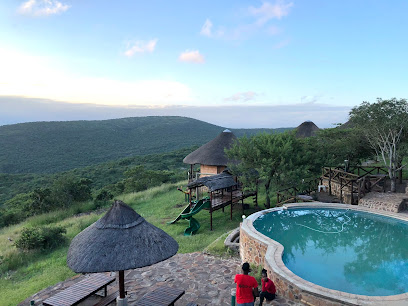
Nisela Nature Reserve
Experience the tranquil beauty of Nisela Nature Reserve, a nature preserve in Eswatini known for its rich biodiversity and stunning landscapes.
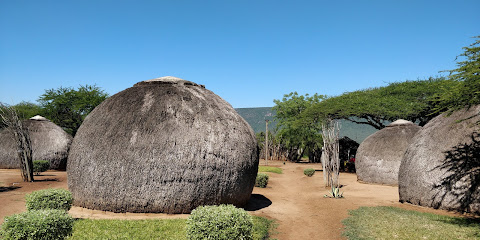
Malolotja National Park
Explore the breathtaking landscapes and diverse wildlife of Malolotja National Park, a must-visit destination in Eswatini for nature lovers.
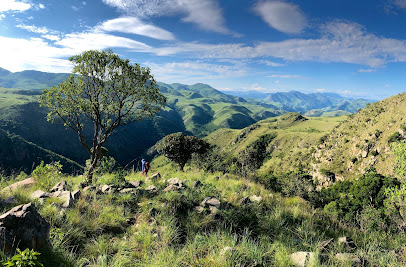
Malolotja Canopy Tour
Discover the breathtaking heights of Malolotja Canopy Tour in Eswatini, where adventure meets nature in thrilling zip-line experiences.
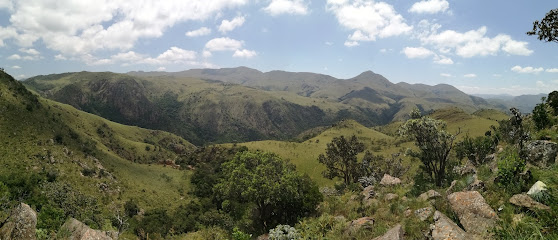
Sibebe Rock
Explore the breathtaking Sibebe Rock, the second-largest granite monolith in the world, set in the heart of Eswatini's stunning landscapes.
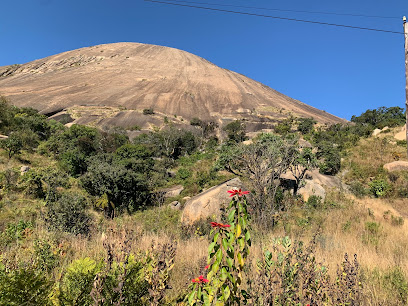
White Elephant Safaris
Discover the luxury of White Elephant Safaris, where wildlife adventure meets unparalleled comfort in the heart of South Africa's Pongola Game Reserve.

Zimanga Private Game Reserve
Discover Zimanga Private Game Reserve, a premier safari destination in South Africa, where wildlife encounters and stunning landscapes await.
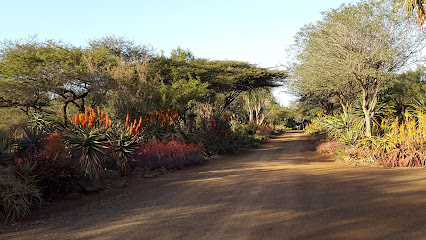
Phongolo Nature Reserve
Explore the breathtaking beauty and diverse wildlife of Phongolo Nature Reserve in South Africa, a must-visit destination for nature lovers and outdoor enthusiasts.

Isdingo Garden
Discover the tranquility of Isdingo Garden in Jozini, South Africa, where lush greenery and vibrant flowers create a serene retreat for nature lovers.

Harloo Safaris
Experience the thrill of wildlife encounters at Harloo Safaris, a premier wildlife and safari park in Pongola, South Africa.
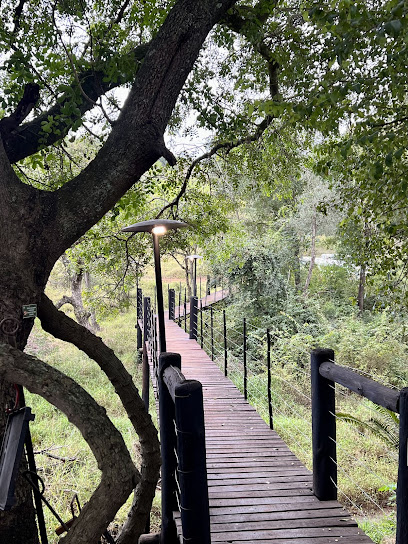
Nathi's Park Jozini River
Discover the natural beauty and tranquility of Nathi's Park along the Jozini River, a perfect retreat for outdoor enthusiasts and nature lovers.

Maloma Nhloya Bird Conservancy
Explore the breathtaking Maloma Nhloya Bird Conservancy in Eswatini, a haven for bird watchers and nature lovers to connect with wildlife.

Uthungulu Zulu Homestead
Dive into the vibrant Zulu culture at Uthungulu Zulu Homestead, a captivating tourist attraction in South Africa showcasing rich traditions and heritage.

GreenHill by LEO
Experience the tranquility and beauty of GreenHill by LEO, a perfect oasis in Eswatini for nature lovers and adventure seekers.
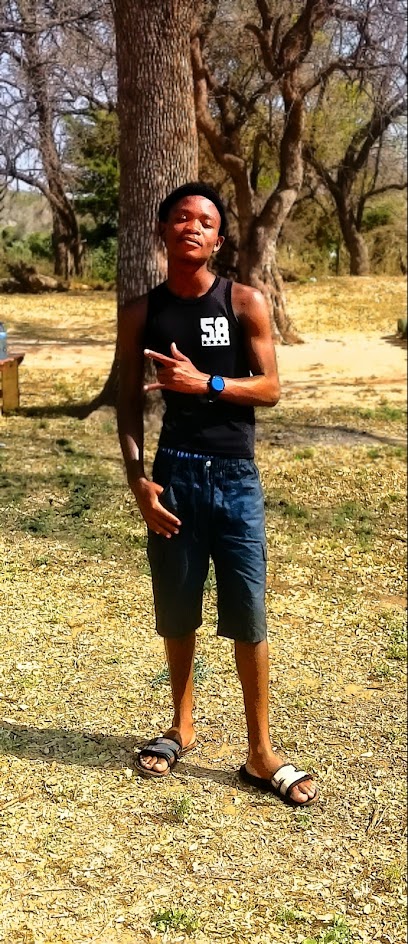
Essential places to dine
Nando's Matsapha
Discover Nando's Matsapha: A vibrant eatery serving mouthwatering peri-peri chicken in Eswatini’s culinary scene.

Nando's Ezulwini
Discover the best of Portuguese and South African flavors at Nando's Ezulwini – home of the legendary peri-peri chicken!
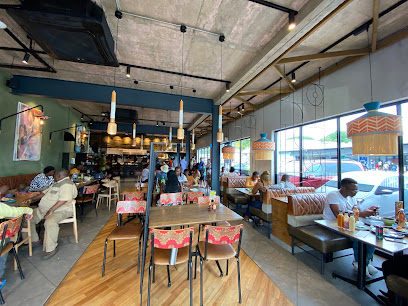
Lavumisa Border Post
Experience seamless travel at Lavumisa Border Post—your gateway to explore the stunning landscapes and rich culture of Eswatini.
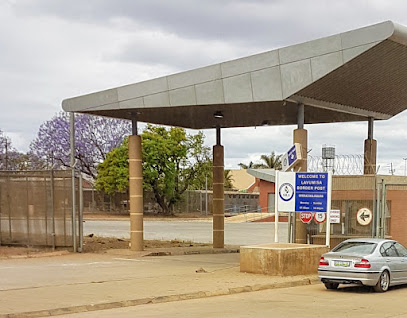
KFC Ngwenya Border Post
Discover KFC Ngwenya Border Post - where delicious fast food meets cultural crossroads in Eswatini.
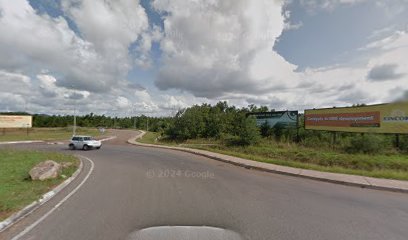
Markets, malls and hidden boutiques
Mantenga Lifestyle & Craft Centre
Discover the vibrant culture of Eswatini at Mantenga Lifestyle & Craft Centre, where shopping meets tradition, adventure, and authentic local cuisine.
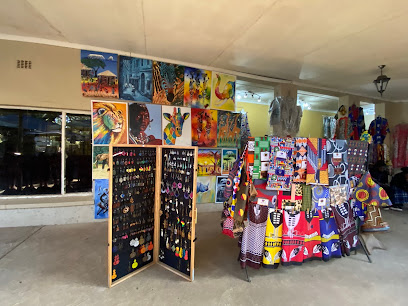
Border Post - Golela
Discover Golela Border Post, a vibrant gateway to Southern Africa's rich cultures and stunning landscapes, ideal for adventurous travelers.
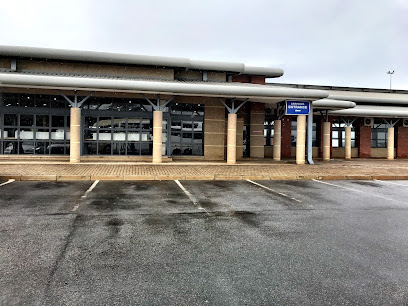
Golela Border Post (ZA) (07h00-22h00)
Discover the vibrant cultural exchange at Golela Border Post, your gateway between South Africa and Eswatini, rich in landscapes and experiences.

GOLELA MINI MARKET
Discover the vibrant Golela Mini Market, your destination for fresh produce and everyday essentials in the heart of Golela.
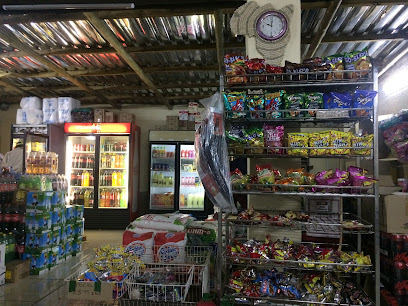
Lavumisa Border Post
Discover the vibrant culture and scenic beauty of Eswatini at the Lavumisa Border Post, your gateway to adventure and exploration.
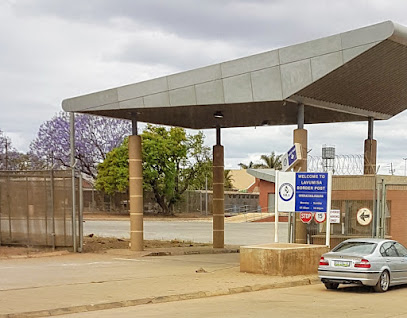
Eezy Eezy Happy Shopping - Jozini
Explore the flavors of Jozini at Eezy Eezy Happy Shopping, your go-to grocery store for local produce and essentials in South Africa.

Amahle Grocery
Immerse yourself in the local culture and flavors at Amahle Grocery, a charming general store in Mbadlane, Eswatini.
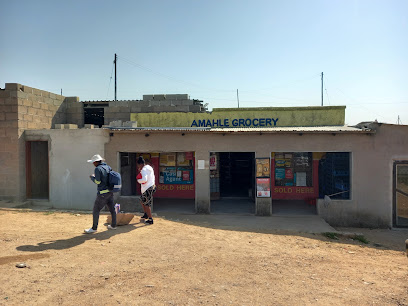
Gira tuck shop
Discover the heart of Jozini at Gira Tuck Shop, your local grocery destination for fresh produce and unique local finds.

Star Was Hardware
Explore Star Was Hardware in Nsimbane for your DIY needs and experience the local culture through craftsmanship and community engagement.

City Pharmacy
Discover reliable health solutions at City Pharmacy in Lavumisa, Eswatini, where expert staff and quality products meet your wellness needs.

Emangwaneni store
Discover Emangwaneni Store in Jozini for a delightful shopping experience filled with local charm and essential goods.

LAVUMISA GENERAL SUPPLIES
Discover the vibrant culture of Lavumisa through local goods and authentic Swazi products at Lavumisa General Supplies.

Ackermans Siphofaneni Plaza
Explore affordable fashion at Ackermans Siphofaneni Plaza, your go-to destination for stylish clothing in Eswatini.

Mac s Liquor store
Discover the flavors of South Africa at Mac's Liquor Store in Lavumisa - your go-to stop for local and international beverages.

OK MINIMARK LAVUMISA (SZ)
Explore local flavors and essentials at OK Minimark Lavumisa, your go-to supermarket in Eswatini.

Essential bars & hidden hideouts
Spiller Bar Pongola
Experience the lively atmosphere and diverse drink selection at Spiller Bar in Pongola, South Africa's vibrant gathering spot.
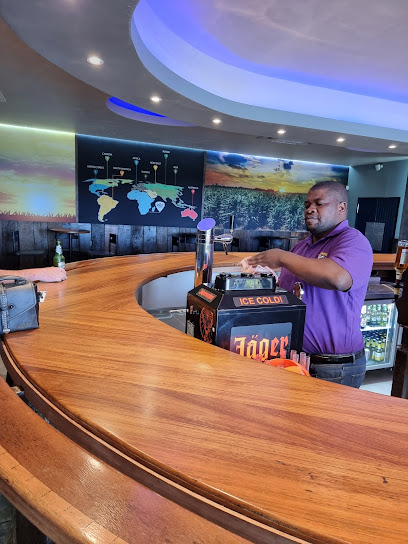
Fat Leisure House
Experience the vibrant nightlife of Pongola at Fat Leisure House, a cozy bar offering an array of drinks and a friendly atmosphere.
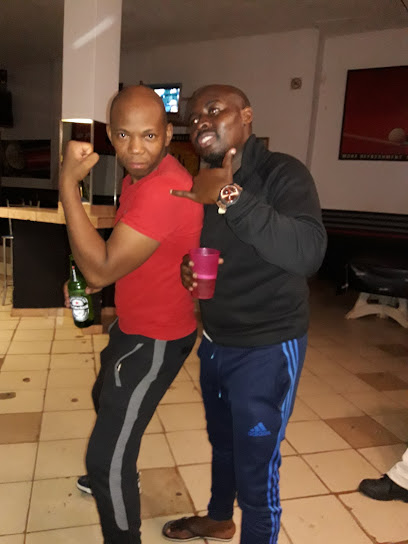
Border Post - Golela
Experience the vibrant cultures and stunning landscapes at the Golela Border Post, your gateway between South Africa and Swaziland.
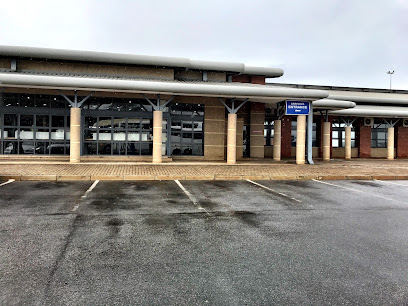
Ayeb Yeb Lounge
Discover the lively Ayeb Yeb Lounge in Pongola, where local culture meets a vibrant bar experience for an unforgettable night out.
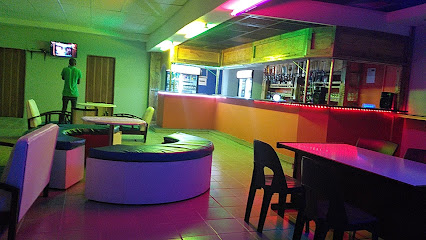
Golela Border Post (ZA) (07h00-22h00)
Cross the Golela Border Post and discover the vibrant cultures of South Africa and Eswatini in a seamless travel experience.
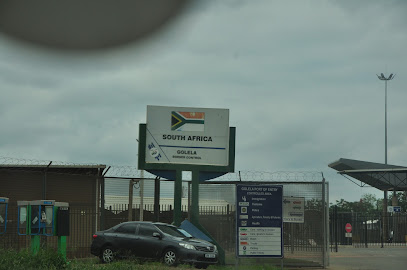
MK Pub & Grill
Discover the lively MK Pub & Grill in Whitecliff, where great drinks and a vibrant atmosphere await every visitor.
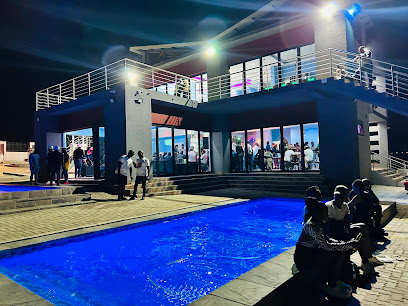
Lismore lodge and restuarant
Experience the warmth of Eswatini at Lismore Lodge and Restaurant, where local flavors meet a welcoming atmosphere.
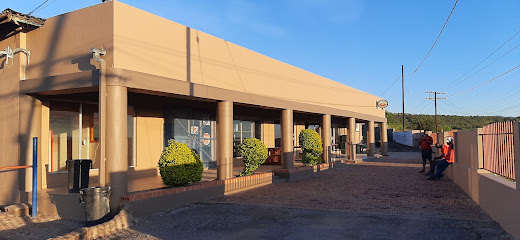
Kuyeza Entertainment Centre
Experience the vibrant atmosphere and local charm at Kuyeza Entertainment Centre, your go-to bar in Jozini for drinks and good company.

Thunderbolt Craft Brewery,, Mahlanya,, Swaziland
Explore the vibrant craft beer scene at Thunderbolt Brewery, where local flavors and artisanal brewing come together in Mahlanya, Swaziland.
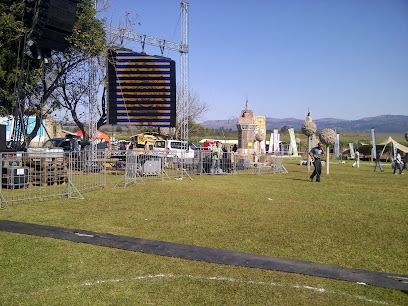
Rouchelles restaurant
Experience the rich flavors of Eswatini at Rouchelles Restaurant in Lavumisa - a culinary gem offering authentic dishes in a warm atmosphere.

FUSION PUB & GRILL
Experience the vibrant flavors of Eswatini at Fusion Pub & Grill, where local culture meets international cuisine in a lively atmosphere.
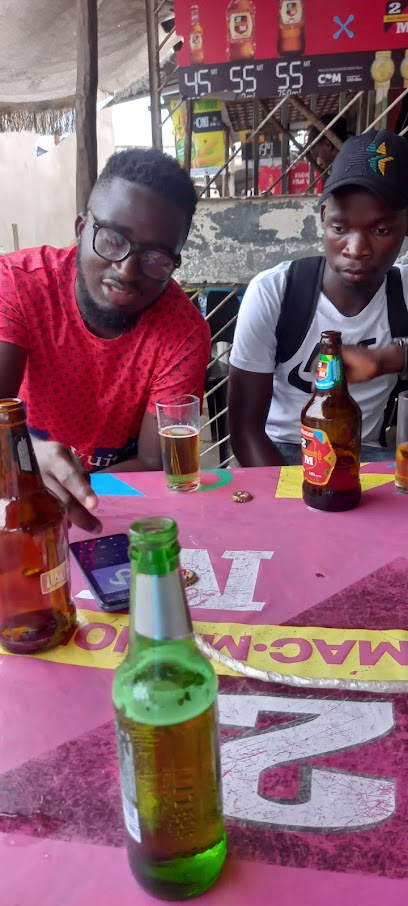
Sinos Bouquet Garni Restaurant
Discover the culinary delights of Eswatini at Sinos Bouquet Garni Restaurant, where fresh local ingredients meet traditional flavors.
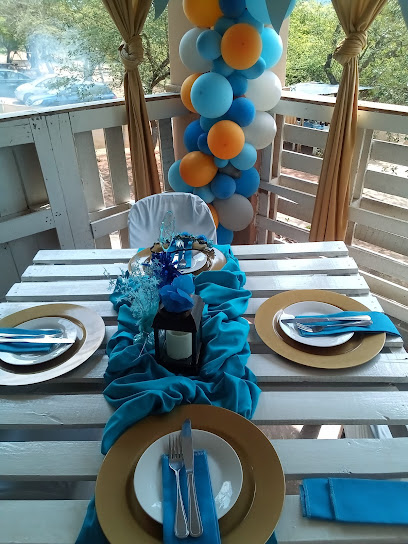
Legends Bar
Discover the vibrant nightlife at Legends Bar in Siphofaneni, a cultural hub offering a lively atmosphere and a wide selection of drinks.

Lomngeletjane Bar( New heights Bar)
Experience the vibrant atmosphere of Lomngeletjane Bar in Big Bend, where local culture meets a lively social scene.

ekhaya
Experience vibrant nightlife at Ekhaya, the heart of Manzini's bar scene, where local culture meets a lively atmosphere.

Local Phrases about Lavumisa Border Post
-
- HelloYebo
[yeh-boh] - GoodbyeSala kahle
[sah-lah kah-hleh] - YesYebo
[yeh-boh] - NoCha
[chah] - Please/You're welcomeNgiyacela
[ng-yah-seh-lah] - Thank youNgiyabonga
[ng-yah-bohn-gah] - Excuse me/SorryUxolo
[ooh-shoh-loh] - How are you?Kunjani?
[koon-jah-nee] - Fine. And you?Ngiyaphila. Wena?
[ng-yah-pee-lah. way-nah] - Do you speak English?Uyasikhuluma IsiNgisi?
[oo-yah-see-khoo-loo-mah ee-see-ng-gee-see] - I don't understandAngazi
[ah-ngah-zee]
- HelloYebo
-
- I'd like to see the menu, pleaseNgicela ukubona imenyu, ngiyabonga
[ngi-seh-lah oo-koo-boh-nah ee-mehn-yoo, ng-yah-bohn-gah] - I don't eat meatAngikwazi ukudla inyama
[ah-ngih-kwah-zee oo-koo-dlah ee-nyah-mah] - Cheers!Ofee!
[oh-feh] - I would like to pay, pleaseNgicela ukulipha, ngiyabonga
[ngi-seh-lah oo-koo-lee-pah, ng-yah-bohn-gah]
- I'd like to see the menu, pleaseNgicela ukubona imenyu, ngiyabonga
-
- Help!Usizo!
[oo-see-zoh] - Go away!Hamba!
[hahm-bah] - Call the Police!Biza amaphoyisa!
[bee-zah ah-mah-poy-ee-sah] - Call a doctor!Biza umuthi!
[bee-zah oo-moo-tee] - I'm lostNgikhohlwe
[ng-ee-koh-khluh-weh] - I'm illNgisikho
[ng-ee-see-khoh]
- Help!Usizo!
-
- I'd like to buy...Ngicela ukuthenga...
[ngi-seh-lah oo-koo-teh-ngah] - I'm just lookingNgicela ukubukeka kuphela
[ngi-seh-lah oo-koo-boo-keh-kah koo-peh-lah] - How much is it?Kuyini lokhu?
[koo-yee-nee loh-koo] - That's too expensiveLokhu kungakwazi
[loh-koo koo-ngah-kwah-zee] - Can you lower the price?Ungakwazi ukushintsha isilinganiso?
[oo-ngah-kwah-zee oo-koo-shint-shah ee-see-lee-ngah-nee-soh]
- I'd like to buy...Ngicela ukuthenga...
-
- What time is it?Yini lesikhathi?
[yee-nee leh-see-khah-tee] - It's one o'clockKuyinto kweyomusha
[koo-yee-n-toh kweh-yoh-moo-shah] - Half past (10)Nesishagalombili
[neh-see-shah-gah-lohm-bee-lee] - MorningEkuseni
[eh-koo-seh-nee] - AfternoonEmini
[eh-mee-nee] - EveningSisontfo
[see-sohn-tfoh] - YesterdayNtfole
[n-tfoh-leh] - TodayNamuhla
[nah-moo-hlah] - TomorrowKusasa
[koo-sah-sah] - 1Kunye
[koo-nyeh] - 2Kubili
[koo-bee-lee] - 3Kuthathu
[koo-tah-tchoo] - 4Kune
[koo-neh] - 5Kuhlanu
[koo-hlah-noo] - 6Kukhona
[koo-khoh-nah] - 7Kukhombisa
[koo-khohm-bee-sah] - 8Kukhwaluka
[koo-khwah-loo-kah] - 9Kukhuluma
[koo-khoo-loo-mah] - 10Kulishumi
[koo-lee-shoo-mee]
- What time is it?Yini lesikhathi?
-
- Where's a/the...?Kodwa kuphi...?
[koh-dwah koo-pee] - What's the address?Kwenzenjani indawo?
[kwehn-zehn-jah-nee een-dah-woh] - Can you show me (on the map)?Ungangishoyo? (Emephu)
[oo-ngah-ng-ee-show-yoh? (eh-meh-poo)] - When's the next (bus)?Kuzoba nini isontfo esilandzelwa?
[koo-zoh-bah nee-nee ee-sohn-tfoh eh-see-lah-nd-zehl-wah] - A ticket (to ....)Itikithi (kulenye...)
[ee-tee-kee-tee (koo-leh-nyeh)]
- Where's a/the...?Kodwa kuphi...?
History of Lavumisa Border Post
-
Lavumisa Border Post was established in the early 20th century as a key entry and exit point between Eswatini and South Africa. Its strategic location made it an important hub for trade and travel, facilitating the movement of people and goods across the border. The post has evolved over the years to accommodate increasing traffic and modernize its facilities.
-
During the colonial period, the British administration invested in the development of infrastructure at Lavumisa Border Post to support economic activities. Roads and rail links were constructed to enhance connectivity, turning the border post into a bustling gateway. This period also saw the establishment of customs and immigration services to regulate cross-border movement.
-
Lavumisa Border Post played a crucial role during the apartheid era in South Africa. As neighboring countries imposed sanctions and restricted trade with South Africa, Lavumisa became a critical point for the movement of goods and people who sought to bypass these restrictions. The border post was heavily monitored, and its operations were influenced by the political tensions of the time.
-
Following Eswatini's independence in 1968, Lavumisa Border Post continued to grow in importance. The government of Eswatini invested in upgrading the border facilities to handle increased traffic and improve security. Lavumisa remained a vital link for trade and travel between Eswatini and South Africa, contributing to the economic development of the region.
-
Lavumisa Border Post has been a focal point for cultural exchange between Eswatini and South Africa. The movement of people across the border has facilitated the sharing of traditions, languages, and customs. Economically, the border post supports local businesses by providing access to broader markets and fostering cross-border trade. It remains a vibrant area, reflecting the close ties between the two nations.
Lavumisa Border Post Essentials
-
Lavumisa Border Post is located in the southeastern part of Eswatini, near the border with South Africa. The nearest major city is Durban, approximately 410 kilometers away. From Durban, you can drive to Lavumisa via the N2 highway, crossing into Eswatini at the Golela border post. Another option is to fly into King Mswati III International Airport, which is about 180 kilometers from the border, and then take a rental car or taxi to Lavumisa.
-
Transportation options in Lavumisa are limited. Local taxis and minibuses (kombi) are available for short distances and are relatively inexpensive. For more convenience and flexibility, renting a car is recommended, especially if you plan to explore the surrounding areas. Be sure to have an international driving permit if you intend to drive.
-
The official currency in Eswatini is the Swazi Lilangeni (SZL), though South African Rand (ZAR) is also widely accepted. Credit cards are accepted in most hotels, restaurants, and larger shops, but it's advisable to carry some cash for smaller establishments and rural areas. ATMs are available in Lavumisa, but ensure you have enough cash before venturing into more remote areas.
-
Lavumisa is generally a safe destination for tourists, but it is wise to take standard precautions. Avoid walking alone at night, especially in poorly lit areas, and keep an eye on your belongings in crowded places. While Lavumisa itself does not have high-crime rates targeting tourists, always stay vigilant and aware of your surroundings.
-
In case of emergency, dial 999 for immediate assistance. The nearest medical facilities are in Nhlangano, about 50 kilometers away. It is advisable to have travel insurance that covers medical emergencies. Local police and emergency services are available in Lavumisa. For minor health issues, there are pharmacies where you can purchase over-the-counter medications.
-
Fashion: Do dress modestly, particularly in rural areas and when visiting religious sites. Avoid wearing revealing clothing. Religion: Do respect local customs and traditions. When visiting churches or traditional ceremonies, dress conservatively and be respectful. Public Transport: Do be polite and courteous. Don't eat or drink on public transport. Greetings: Do greet people with a handshake and a smile. A slight bow of the head is also a sign of respect. Eating & Drinking: Do try local dishes and accept food offerings graciously. Don’t refuse hospitality, as it is considered impolite.
-
To experience Lavumisa like a local, visit the local markets where you can buy fresh produce and traditional Swazi crafts. Engage with locals, as they are often friendly and willing to share stories about their culture and traditions. Don't miss the opportunity to attend a traditional Swazi dance or ceremony if one is taking place during your visit. For a unique experience, explore the surrounding nature reserves and enjoy the local wildlife.
Nearby Cities to Lavumisa Border Post
-
Things To Do in Manzini
-
Things To Do in Malkerns
-
Things To Do in Mbabane
-
Things To Do in Mhlume
-
Things To Do in Maputo
-
Things To Do in Matola
-
Things To Do in Nelspruit
-
Things To Do in Durban
-
Things To Do in Mokhotlong
-
Things To Do in Butha-Buthe
-
Things To Do in Johannesburg
-
Things To Do in Thaba-Tseka
-
Things To Do in Pretoria
-
Things To Do in Leribe
-
Things To Do in Polokwane





